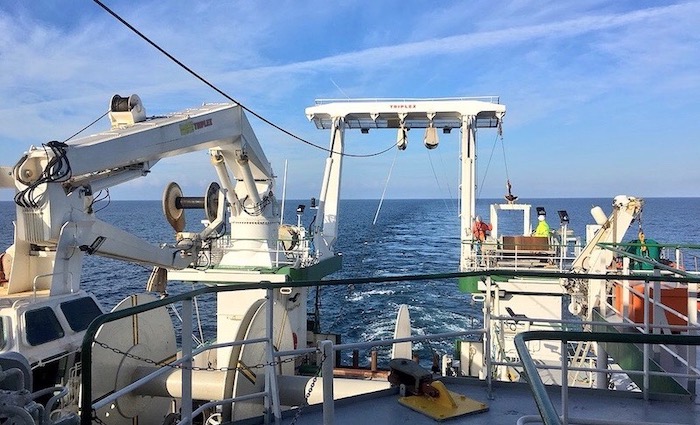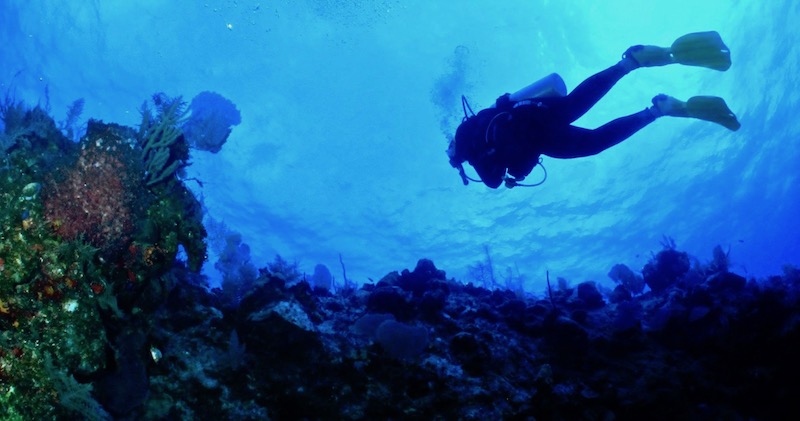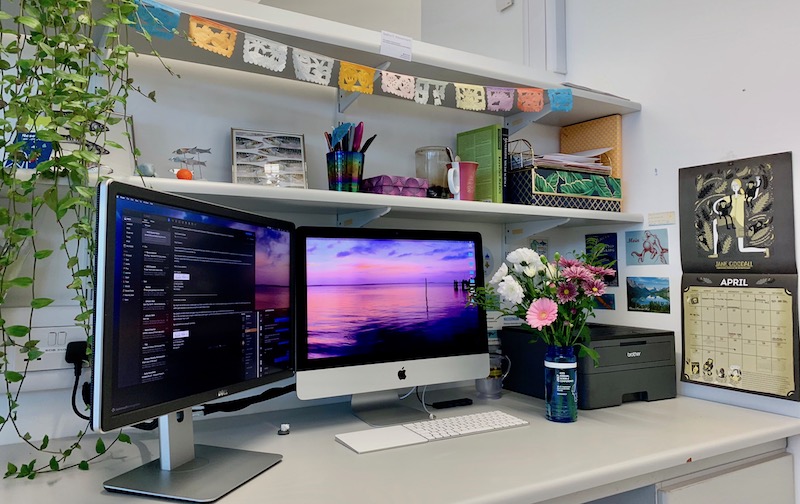When speaking to some first-year undergrads this week, my PhD sister, Morag, brought up a really good point about picking what research you want to do. Many of us in marine biology/science love sharks, whales, octopus, seabirds, etc., and they’re often what instigated our interest in the ocean. However, when picking a research topic or applying for a program it’s important to think about what you’ll do day-to-day.

Beautiful view off the stern of the RV Celtic Explorer from my last cruise.
While I like fish and I love being at sea, I spend a couple weeks a year on research vessels doing field work. The vast majority of my time is spent doing something very different – sitting in front of a computer.
I come from a background of field research. I’m a dive instructor; I’ve worked in the Caribbean. And while the diving was incredible, my day-to-day work then was mostly fixing things like boat trailers and mooring lines. When I stumbled into computational work, however, I realized I could do so much research right from my desk! I found that I liked playing with data, wrestling with code, reading papers: the day-to-day banality of desk-based research. While maybe not as exciting, I felt like I could do more and, as is my general goal in science, make more of a difference.

Wow. I used to dive here daily!
So, if you’re trying to pick a research field, more than what animal or ecosystem you’re most interested in, think about what you’ll be doing day-to-day. Ask people in the field what their lives are like. If you like lab work, consider a lab-heavy field like genetics. If you like computers and figuring out puzzles, consider learning how to code. Even within fieldwork, think about whether you can handle hot or cold conditions, if you enjoy dissections or excel at identifications. I, for one, made the mistake of moving to Northern Europe when I hate the cold. ;)
Also, everything in the ocean is connected. For example, if you like whale sharks, perhaps studying the distributions of plankton and the effects of coastal pollution are research avenues that may have direct impacts on whale sharks, and may provide opportunity to learn skills that will serve you well in the future. The practical skills you can learn in the field, lab, or desk can be applied to many different research questions later on. There are endless interesting questions to be asked, if you’re open to the opportunity.

I do love my desk though. Helps to have some plants and little trinkets. Also note my awesome Women in Science calendar!
